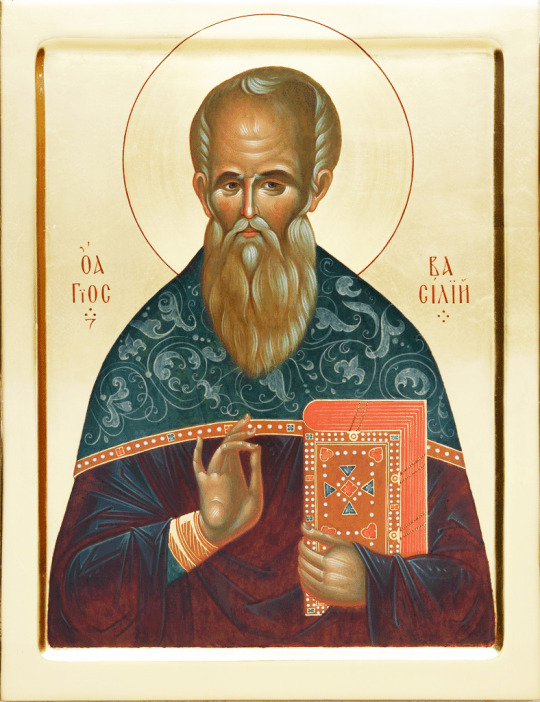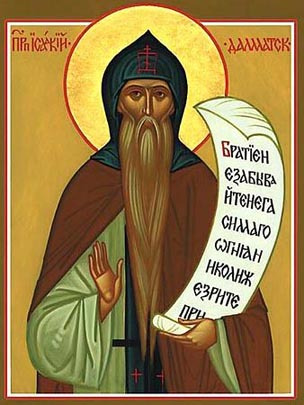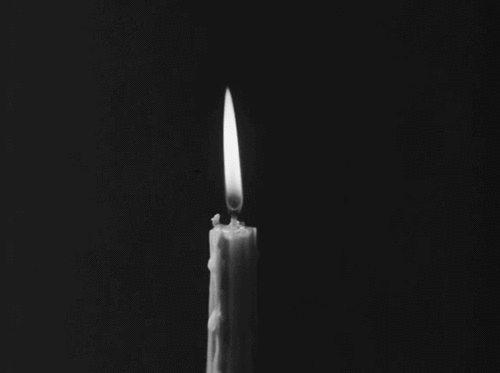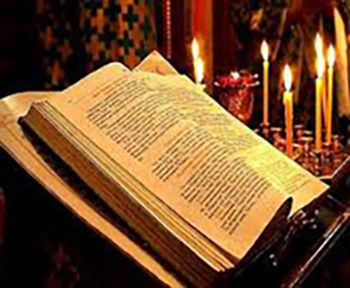#weak orthodox priest stomach
Text
Saints&Reading: Sun., Avr., 4, 2021
Commemorated on March 22_by the new calendar
The Priest Martyr Basil was a presbyter in Galatian Ancyra (362

During the time of the widespread Arian heresy he summoned his flock to hold on firmly to Orthodoxy. For this Saint Basil was deprived of the priestly dignity by a local Arian council, but at a Palestine Council of 230 bishops he was restored to the dignity of presbyter. Saint Basil openly continued his preaching, denouncing the Arians, and for this he became the victim of persecution and was subjected to beating as a man allegedly dangerous to the state. Two apostates – Elpidios and Pegasios – were appointed for breaking away Saint Basil from Orthodoxy. But the saint remained unshakable and for this was again subjected to tortures. When the emperor Julian the Apostate (361-363) arrived in the city of Ancyra, Saint Basil afront him at the trial bravely confessed Christ, and denounced the emperor for his apostasy. Julian gave orders to cut a strip of skin from the back of the saint. But the holy Presbyter Basil undauntedly endured the gruesome torture.
When they began to burn and tear at the shoulders and stomach with red-hot rods, he fell down upon the ground from the torments and loudly prayed: "O Christ, my Light! O Jesus, my Hope! Quiet Haven for the pounding by waves. I give Thee thanks, O Lord God of my fathers, in that Thou hast snatched my soul from the pit of hell and preserved Thy Name in me unstained! Let me finish my life a victor and inherit rest eternal according to the promise, given my fathers by Thee, Great High-Priest Jesus Christ, our Lord! Now in peace accept my soul, plying steadfast in this confession! For Thou art merciful and great is Thine mercy, Thou Who dost live and sojourn throughout all the ages, amen".
Having made suchlike prayer, and lacerated all over by the red-hot rods, the saint as it were fell into a sweet slumber, giving up his soul into the hands of God. The PriestMartyr Basil died 29 June 362. On account of the feastday of the holy Apostles Peter and Paul, his memory was transferred to 22 March.
When they began to burn and tear at the shoulders and stomach with red-hot rods, he fell down upon the ground from the torments and loudly prayed: "O Christ, my Light! O Jesus, my Hope! Quiet Haven for the pounding by waves. I give Thee thanks, O Lord God of my fathers, in that Thou hast snatched my soul from the pit of hell and preserved Thy Name in me unstained! Let me finish my life a victor and inherit rest eternal according to the promise, given my fathers by Thee, Great High-Priest Jesus Christ, our Lord! Now in peace accept my soul, plying steadfast in this confession! For Thou art merciful and great is Thine mercy, Thou Who dost live and sojourn throughout all the ages, amen".
Having made suchlike prayer, and lacerated all over by the red-hot rods, the saint as it were fell into a sweet slumber, giving up his soul into the hands of God. The PriestMartyr Basil died 29 June 362. On account of the feastday of the holy Apostles Peter and Paul, his memory was transferred to 22 March.
The Monk Isaac of Dalmatia (338O)

The Monk Isaac lived during the IV Century, accepted monastic vows and pursued asceticism in the wilderness. During the years of the reign of the emperor Valentus (364-378) – a zealous adherent of the Arian heresy, they began to persecute the Orthodox, closing and destroying churches. Having learned of the persecution, the Monk Isaac quit the wilderness and arrived in Constantinople, so as to console and encourage the Orthodox. At this time barbarian Goths, dwelling along the River Danube/Dunaj, were making war against the empire. They seized Thrace and advanced towards Constantinople. When the emperor Valentus was leaving the capital with his soldiers, the Monk Isaac – turning himself towards the emperor, loudly cried out: "Emperor, unlock the churches of the Orthodox, and then the Lord wilt aid thee!". But the emperor, disdaining the words of the monk, confidently continued on his way. Three times did the monk repeat his request and prophecy. The angry emperor gave orders to hurl the Monk Isaac into a deep ravine, grown over with prickly thorns. By day the ravine was a swamp, and to emerge from it was impossible. But the monk with the help of God remained alive, and he emerged, overtook the emperor and said: "Thou wanted to destroy me, but the holy Angels did save me from peril. Hear me, open up the churches to the Orthodox and thou shalt defeat the enemy. If however thou dost not heed me, then thou shalt not return alive, but shalt perish in fire". The emperor was astonished at the boldness of the monk and ordered his attendants Saturninus and Victor to take the monk and hold him in prison until his return.
The prophecy of the saint soon happened. The Goths defeated and began to chase down the Greek army. The emperor together with his Arian generals took refuge in a barn with straw, and the attackers set it afire. After receiving news about the perishing of the emperor, they set free the Monk Isaac and began to honour him as a prophet of God. Onto the throne was then chosen the holy Emperor Theodosius the Great (379-395), who on the advice of Saturninus and Victor summoned the elder to himself, meeting him with great respect, beseeching prayers to the saints and fulfilling all his instructions: he banished the Arians from Constantinople and restored the churches to the Orthodox. The Monk Isaac wanted to return into the wilderness, but Saturninus and Victor besought him not to leave the city, but rather to protect it with his prayers. In the outskirts of Constantinople they built for the saint an hut, where monks gathered to him. Thus arose a monastery, the hegumen and spiritual guide of which was the Monk Isaac. He nourished also the laypeople, and helped many of the poor and suffering. Having reached extreme old age, the Monk Isaac made co-hegumen together with him the Monk Dalmatos (the account about him is located under 3 August), by whose name the monastery was called. The Monk Isaac died in the year 383, and his memory is celebrated also on 30 May.
© All texts: 1996-2001 by translator Fr. S. Janos.


John 21:1-14
1 After these things Jesus showed Himself again to the disciples at the Sea of Tiberias, and in this way He showed Himself: 2 Simon Peter, Thomas called the Twin, Nathanael of Cana in Galilee, the sons of Zebedee, and two others of His disciples were together. 3 Simon Peter said to them, "I am going fishing." They said to him, "We are going with you also." They went out and immediately got into the boat, and that night they caught nothing. 4 But when the morning had now come, Jesus stood on the shore; yet the disciples did not know that it was Jesus. 5 Then Jesus said to them, "Children, have you any food?" They answered Him, "No." 6 And He said to them, "Cast the net on the right side of the boat, and you will find some." So they cast, and now they were not able to draw it in because of the multitude of fish. 7 Therefore that disciple whom Jesus loved said to Peter, "It is the Lord!" Now when Simon Peter heard that it was the Lord, he put on his outer garment (for he had removed it), and plunged into the sea. 8 But the other disciples came in the little boat (for they were not far from land, but about two hundred cubits), dragging the net with fish. 9 Then, as soon as they had come to land, they saw a fire of coals there, and fish laid on it, and bread. 10 Jesus said to them, "Bring some of the fish which you have just caught." 11 Simon Peter went up and dragged the net to land, full of large fish, one hundred and fifty-three; and although there were so many, the net was not broken.12 Jesus said to them, "Come and eat breakfast." Yet none of the disciples dared ask Him, "Who are You?"-knowing that it was the Lord. 13 Jesus then came and took the bread and gave it to them, and likewise the fish. 14 This is now the third time Jesus showed Himself to His disciples after He was raised from the dead.
Hebrews 4:14-5:6
14Seeing then that we have a great High Priest who has passed through the heavens, Jesus the Son of God, let us hold fast our confession.15 For we do not have a High Priest who cannot sympathize with our weaknesses, but was in all points tempted as we are, yet without sin. 16 Let us therefore come boldly to the throne of grace, that we may obtain mercy and find grace to help in time of need.
1For every high priest taken from among men is appointed for men in things pertaining to God, that he may offer both gifts and sacrifices for sins. 2 He can have compassion on those who are ignorant and going astray, since he himself is also subject to weakness. 3 Because of this he is required as for the people, so also for himself, to offer sacrifices for sins. 4 And no man takes this honor to himself, but he who is called by God, just as Aaron was. 5 So also Christ did not glorify Himself to become High Priest, but it was He who said to Him:"You are My Son, Today I have begotten You." 6 As He also says in another place:"You are a priest forever According to the order of Melchizedek";
#orthodoxy#orthodoxchristianity#ancientchristianity#originofchristianity#spirituality#holyscripture#gospel#sacred texts#wisdom
1 note
·
View note